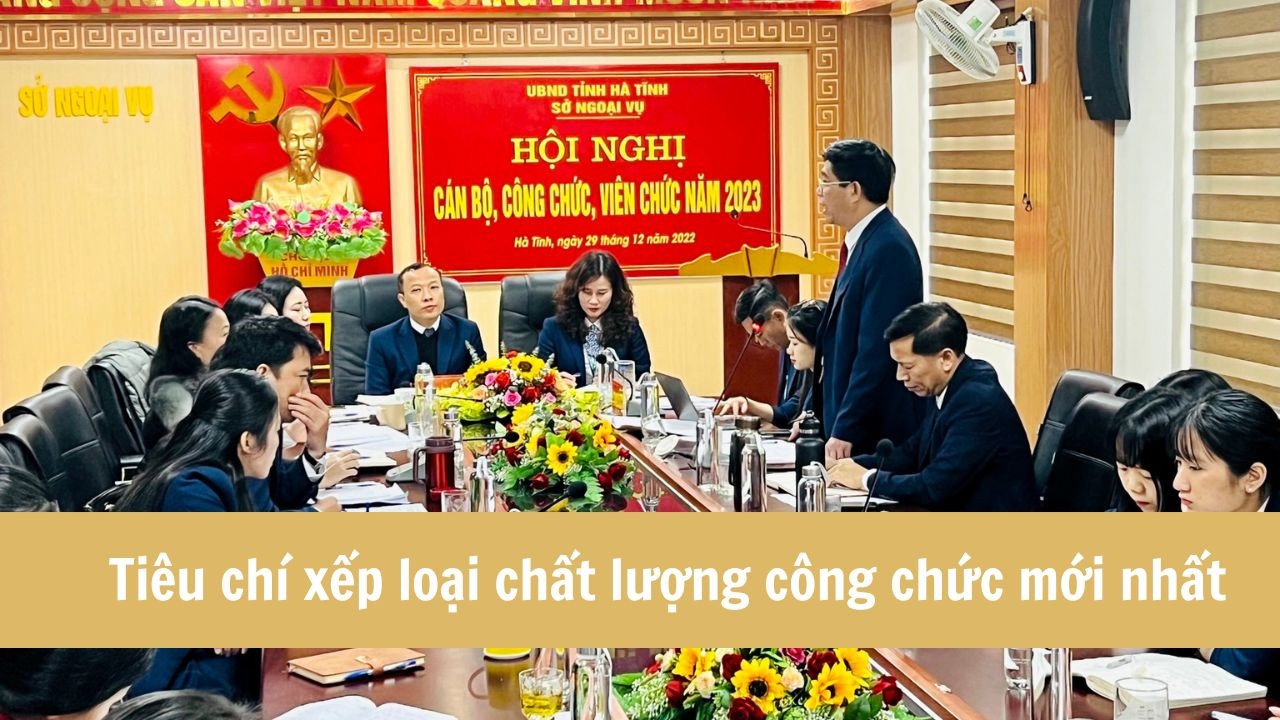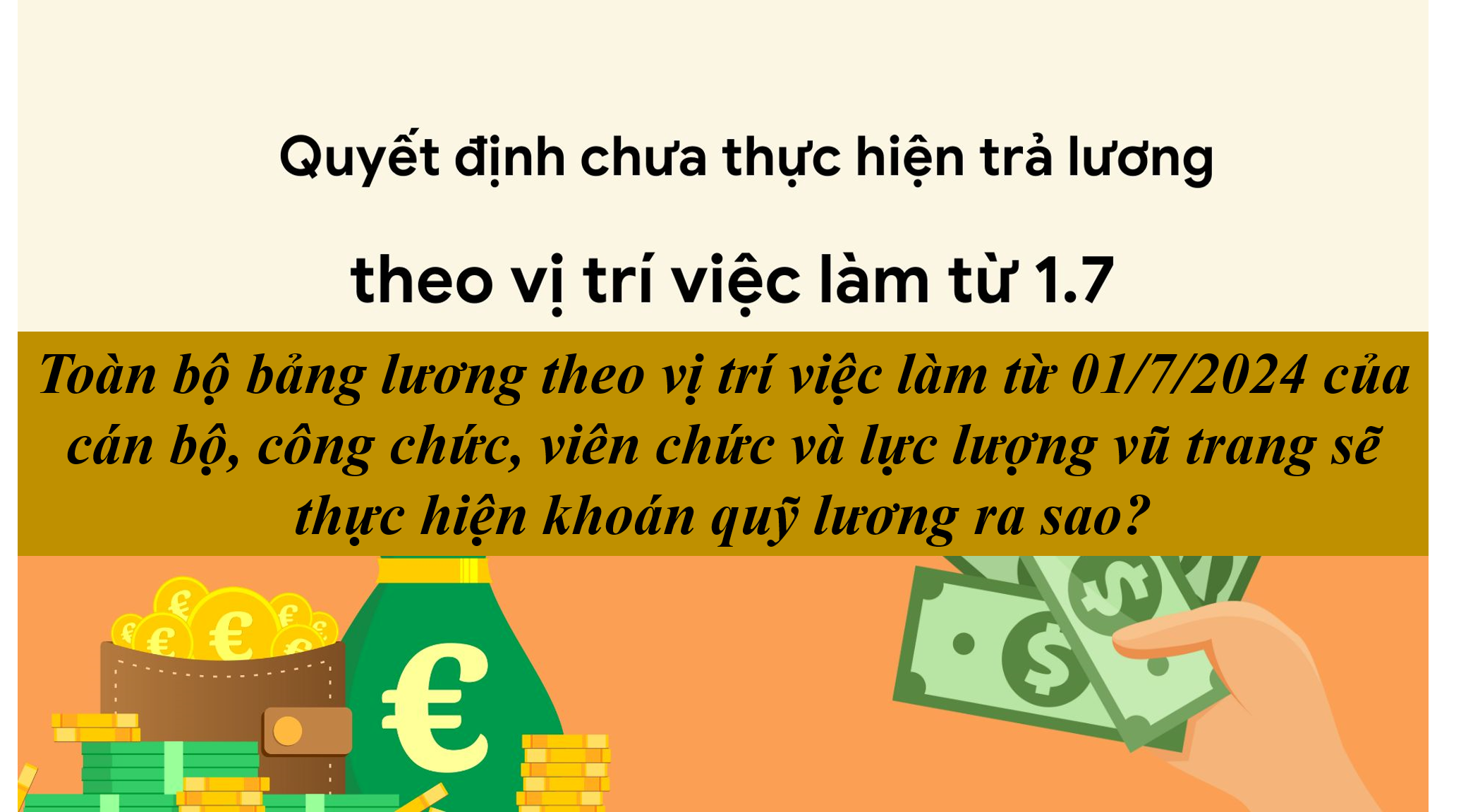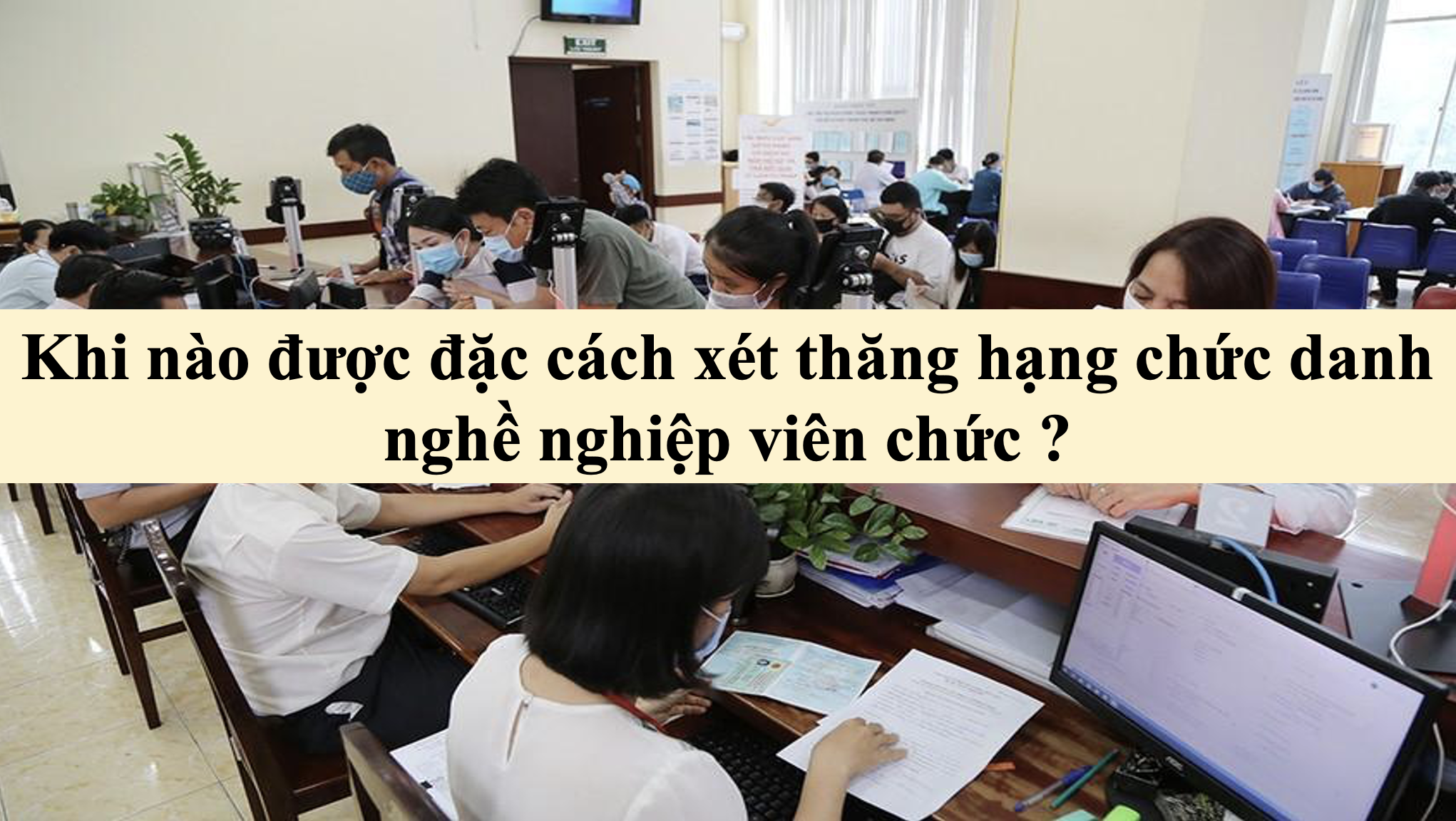 Tìm kiếm
Tìm kiếm
Chương IV Luật cán bộ, công chức 2008: Công chức ở trung ương, cấp tỉnh, cấp huyện
| Số hiệu: | 22/2008/QH12 | Loại văn bản: | Luật |
| Nơi ban hành: | Quốc hội | Người ký: | Nguyễn Phú Trọng |
| Ngày ban hành: | 13/11/2008 | Ngày hiệu lực: | 01/01/2010 |
| Ngày công báo: | 10/03/2009 | Số công báo: | Từ số 143 đến số 144 |
| Lĩnh vực: | Bộ máy hành chính | Tình trạng: | Còn hiệu lực |
TÓM TẮT VĂN BẢN
Văn bản tiếng việt
Văn bản tiếng anh
1. Công chức quy định tại khoản 2 Điều 4 của Luật này bao gồm:
a) Công chức trong cơ quan của Đảng Cộng sản Việt Nam, tổ chức chính trị - xã hội;
b) Công chức trong cơ quan nhà nước;
c) Công chức trong bộ máy lãnh đạo, quản lý của đơn vị sự nghiệp công lập;
d) Công chức trong cơ quan, đơn vị thuộc Quân đội nhân dân mà không phải là sĩ quan, quân nhân chuyên nghiệp, công nhân quốc phòng; công chức trong cơ quan, đơn vị thuộc Công an nhân dân mà không phải là sĩ quan, hạ sĩ quan chuyên nghiệp.
2. Chính phủ quy định cụ thể Điều này.
1. Căn cứ vào ngạch được bổ nhiệm, công chức được phân loại như sau:
a) Loại A gồm những người được bổ nhiệm vào ngạch chuyên viên cao cấp hoặc tương đương;
b) Loại B gồm những người được bổ nhiệm vào ngạch chuyên viên chính hoặc tương đương;
c) Loại C gồm những người được bổ nhiệm vào ngạch chuyên viên hoặc tương đương;
d) Loại D gồm những người được bổ nhiệm vào ngạch cán sự hoặc tương đương và ngạch nhân viên.
2. Căn cứ vào vị trí công tác, công chức được phân loại như sau:
a) Công chức giữ chức vụ lãnh đạo, quản lý;
b) Công chức không giữ chức vụ lãnh đạo, quản lý.
Việc tuyển dụng công chức phải căn cứ vào yêu cầu nhiệm vụ, vị trí việc làm và chỉ tiêu biên chế.
1. Người có đủ các điều kiện sau đây không phân biệt dân tộc, nam nữ, thành phần xã hội, tín ngưỡng, tôn giáo được đăng ký dự tuyển công chức:
a) Có một quốc tịch là quốc tịch Việt Nam;
b) Đủ 18 tuổi trở lên;
c) Có đơn dự tuyển; có lý lịch rõ ràng;
d) Có văn bằng, chứng chỉ phù hợp;
đ) Có phẩm chất chính trị, đạo đức tốt;
e) Đủ sức khoẻ để thực hiện nhiệm vụ;
g) Các điều kiện khác theo yêu cầu của vị trí dự tuyển.
2. Những người sau đây không được đăng ký dự tuyển công chức:
a) Không cư trú tại Việt Nam;
b) Mất hoặc bị hạn chế năng lực hành vi dân sự;
c) Đang bị truy cứu trách nhiệm hình sự; đang chấp hành hoặc đã chấp hành xong bản án, quyết định về hình sự của Tòa án mà chưa được xóa án tích; đang bị áp dụng biện pháp xử lý hành chính đưa vào cơ sở chữa bệnh, cơ sở giáo dục.
1. Việc tuyển dụng công chức được thực hiện thông qua thi tuyển, trừ trường hợp quy định tại khoản 2 Điều này. Hình thức, nội dung thi tuyển công chức phải phù hợp với ngành, nghề, bảo đảm lựa chọn được những người có phẩm chất, trình độ và năng lực đáp ứng yêu cầu tuyển dụng.
2. Người có đủ điều kiện quy định tại khoản 1 Điều 36 của Luật này cam kết tình nguyện làm việc từ 05 năm trở lên ở miền núi, biên giới, hải đảo, vùng sâu, vùng xa, vùng dân tộc thiểu số, vùng có điều kiện kinh tế - xã hội đặc biệt khó khăn thì được tuyển dụng thông qua xét tuyển.
3. Chính phủ quy định cụ thể việc thi tuyển, xét tuyển công chức.
1. Tòa án nhân dân tối cao, Viện kiểm sát nhân dân tối cao, Kiểm toán Nhà nước thực hiện tuyển dụng và phân cấp tuyển dụng công chức trong cơ quan, tổ chức, đơn vị thuộc quyền quản lý.
2. Văn phòng Quốc hội, Văn phòng Chủ tịch nước thực hiện tuyển dụng công chức trong cơ quan, đơn vị thuộc quyền quản lý.
3. Bộ, cơ quan ngang bộ, cơ quan thuộc Chính phủ tuyển dụng và phân cấp tuyển dụng công chức trong cơ quan, tổ chức, đơn vị thuộc quyền quản lý.
4. Ủy ban nhân dân cấp tỉnh tuyển dụng và phân cấp tuyển dụng công chức trong cơ quan, tổ chức, đơn vị thuộc quyền quản lý.
5. Cơ quan của Đảng Cộng sản Việt Nam, tổ chức chính trị - xã hội tuyển dụng và phân cấp tuyển dụng công chức trong cơ quan, tổ chức, đơn vị thuộc quyền quản lý.
Người được tuyển dụng vào công chức phải thực hiện chế độ tập sự theo quy định của Chính phủ.
Việc tuyển chọn, bổ nhiệm Thẩm phán Tòa án nhân dân, Kiểm sát viên Viện kiểm sát nhân dân được thực hiện theo quy định của pháp luật về tổ chức Tòa án nhân dân và pháp luật về tổ chức Viện kiểm sát nhân dân.
a) Chuyên viên cao cấp và tương đương;
b) Chuyên viên chính và tương đương;
c) Chuyên viên và tương đương;
d) Cán sự và tương đương;
2. Việc bổ nhiệm vào ngạch phải bảo đảm các điều kiện sau đây:
a) Người được bổ nhiệm có đủ tiêu chuẩn chuyên môn, nghiệp vụ của ngạch;
b) Việc bổ nhiệm vào ngạch phải đúng thẩm quyền và bảo đảm cơ cấu công chức của cơ quan, tổ chức, đơn vị.
3. Việc bổ nhiệm vào ngạch công chức được thực hiện trong các trường hợp sau đây:
a) Người được tuyển dụng đã hoàn thành chế độ tập sự;
b) Công chức trúng tuyển kỳ thi nâng ngạch;
c) Công chức chuyển sang ngạch tương đương.
1. Chuyển ngạch là việc công chức đang giữ ngạch của ngành chuyên môn này được bổ nhiệm sang ngạch của ngành chuyên môn khác có cùng thứ bậc về chuyên môn, nghiệp vụ.
2. Công chức được chuyển ngạch phải có đủ tiêu chuẩn chuyên môn, nghiệp vụ của ngạch được chuyển và phù hợp với nhiệm vụ, quyền hạn được giao.
3. Công chức được giao nhiệm vụ không phù hợp với chuyên môn, nghiệp vụ của ngạch công chức đang giữ thì phải được chuyển ngạch cho phù hợp.
4. Không thực hiện nâng ngạch, nâng lương khi chuyển ngạch.
1. Việc nâng ngạch phải căn cứ vào vị trí việc làm, phù hợp với cơ cấu công chức của cơ quan, tổ chức, đơn vị và thông qua thi tuyển.
2. Công chức có đủ tiêu chuẩn, điều kiện để đảm nhận vị trí việc làm tương ứng với ngạch cao hơn thì được đăng ký dự thi nâng ngạch.
3. Kỳ thi nâng ngạch được tổ chức theo nguyên tắc cạnh tranh, công khai, minh bạch, khách quan và đúng pháp luật.
1. Cơ quan, tổ chức, đơn vị có nhu cầu về công chức đảm nhận vị trí việc làm tương ứng với ngạch dự thi thì công chức của cơ quan, tổ chức, đơn vị đó được đăng ký dự thi.
2. Công chức đăng ký dự thi nâng ngạch phải có phẩm chất chính trị, đạo đức, năng lực, trình độ chuyên môn, nghiệp vụ đáp ứng yêu cầu của ngạch dự thi.
1. Nội dung và hình thức thi nâng ngạch công chức phải phù hợp với chuyên môn, nghiệp vụ của ngạch dự thi, bảo đảm lựa chọn công chức có năng lực, trình độ chuyên môn, nghiệp vụ phù hợp với tiêu chuẩn của ngạch dự thi và đáp ứng yêu cầu nhiệm vụ.
2. Bộ Nội vụ chủ trì, phối hợp với cơ quan, tổ chức hữu quan tổ chức kỳ thi nâng ngạch công chức.
3. Chính phủ quy định cụ thể về việc thi nâng ngạch công chức.
1. Nội dung, chương trình, hình thức, thời gian đào tạo, bồi dưỡng công chức phải căn cứ vào tiêu chuẩn chức danh, chức vụ lãnh đạo, quản lý, tiêu chuẩn của ngạch công chức và phù hợp với yêu cầu nhiệm vụ.
2. Hình thức đào tạo, bồi dưỡng công chức bao gồm:
a) Bồi dưỡng theo tiêu chuẩn ngạch công chức;
b) Đào tạo, bồi dưỡng theo các chức danh lãnh đạo, quản lý.
3. Nội dung, chương trình, thời gian đào tạo, bồi dưỡng công chức do Chính phủ quy định.
1. Cơ quan, tổ chức, đơn vị quản lý công chức có trách nhiệm xây dựng và công khai quy hoạch, kế hoạch đào tạo, bồi dưỡng để tạo nguồn và nâng cao năng lực, trình độ chuyên môn, nghiệp vụ của công chức.
2. Cơ quan, tổ chức, đơn vị sử dụng công chức có trách nhiệm tạo điều kiện để công chức tham gia đào tạo, bồi dưỡng nâng cao năng lực, trình độ chuyên môn, nghiệp vụ của công chức.
3. Kinh phí đào tạo, bồi dưỡng công chức do ngân sách nhà nước cấp và các nguồn thu khác theo quy định của pháp luật.
1. Công chức tham gia đào tạo, bồi dưỡng phải chấp hành nghiêm chỉnh quy chế đào tạo, bồi dưỡng và chịu sự quản lý của cơ sở đào tạo, bồi dưỡng.
2. Công chức tham gia đào tạo, bồi dưỡng được hưởng nguyên lương và phụ cấp; thời gian đào tạo, bồi dưỡng được tính vào thâm niên công tác liên tục, được xét nâng lương theo quy định của pháp luật.
3. Công chức đạt kết quả xuất sắc trong khóa đào tạo, bồi dưỡng được biểu dương, khen thưởng.
4. Công chức đã được đào tạo, bồi dưỡng nếu tự ý bỏ việc, xin thôi việc phải đền bù chi phí đào tạo, bồi dưỡng theo quy định của pháp luật.
1. Việc điều động công chức phải căn cứ vào yêu cầu nhiệm vụ và phẩm chất chính trị, đạo đức, năng lực, trình độ chuyên môn, nghiệp vụ của công chức.
2. Công chức được điều động phải đạt yêu cầu về chuyên môn, nghiệp vụ phù hợp với vị trí việc làm mới.
1. Việc bổ nhiệm công chức giữ chức vụ lãnh đạo, quản lý phải căn cứ vào:
a) Nhu cầu, nhiệm vụ của cơ quan, tổ chức, đơn vị;
b) Tiêu chuẩn, điều kiện của chức vụ lãnh đạo, quản lý.
Thẩm quyền, trình tự, thủ tục bổ nhiệm công chức lãnh đạo, quản lý được thực hiện theo quy định của pháp luật và của cơ quan có thẩm quyền.
2. Thời hạn bổ nhiệm công chức giữ chức vụ lãnh đạo, quản lý là 05 năm; khi hết thời hạn, cơ quan, tổ chức, đơn vị có thẩm quyền phải xem xét bổ nhiệm lại hoặc không bổ nhiệm lại.
3. Công chức được điều động đến cơ quan, tổ chức, đơn vị khác hoặc được bổ nhiệm chức vụ lãnh đạo, quản lý mới thì đương nhiên thôi giữ chức vụ lãnh đạo, quản lý đang đảm nhiệm, trừ trường hợp kiêm nhiệm.
1. Căn cứ vào yêu cầu nhiệm vụ, quy hoạch, kế hoạch sử dụng công chức, công chức lãnh đạo, quản lý được luân chuyển trong hệ thống các cơ quan của Đảng Cộng sản Việt Nam, Nhà nước, tổ chức chính trị - xã hội.
2. Chính phủ quy định cụ thể việc luân chuyển công chức.
1. Cơ quan, tổ chức, đơn vị quản lý công chức biệt phái công chức đến làm việc ở cơ quan, tổ chức, đơn vị khác theo yêu cầu nhiệm vụ.
2. Thời hạn biệt phái không quá 03 năm, trừ một số ngành, lĩnh vực do Chính phủ quy định.
3. Công chức biệt phái phải chấp hành phân công công tác của cơ quan, tổ chức, đơn vị nơi được cử đến biệt phái.
4. Công chức biệt phái đến miền núi, biên giới, hải đảo, vùng sâu, vùng xa, vùng dân tộc thiểu số, vùng có điều kiện kinh tế - xã hội đặc biệt khó khăn được hưởng các chính sách ưu đãi theo quy định của pháp luật.
5. Cơ quan, tổ chức, đơn vị quản lý công chức biệt phái có trách nhiệm bố trí công việc phù hợp cho công chức khi hết thời hạn biệt phái.
6. Không thực hiện biệt phái công chức nữ đang mang thai hoặc nuôi con dưới 36 tháng tuổi.
1. Công chức lãnh đạo, quản lý có thể từ chức hoặc miễn nhiệm trong các trường hợp sau đây:
a) Không đủ sức khỏe;
b) Không đủ năng lực, uy tín;
c) Theo yêu cầu nhiệm vụ;
d) Vì lý do khác.
2. Công chức lãnh đạo, quản lý sau khi từ chức hoặc miễn nhiệm được bố trí công tác phù hợp với chuyên môn, nghiệp vụ được đào tạo hoặc nghỉ hưu, thôi việc.
3. Công chức lãnh đạo, quản lý xin từ chức hoặc miễn nhiệm nhưng chưa được cấp có thẩm quyền đồng ý cho từ chức hoặc miễn nhiệm vẫn phải tiếp tục thực hiện nhiệm vụ, quyền hạn của mình.
4. Thẩm quyền, trình tự, thủ tục xem xét, quyết định việc từ chức hoặc miễn nhiệm công chức lãnh đạo, quản lý được thực hiện theo quy định của pháp luật và của cơ quan có thẩm quyền.
Đánh giá công chức để làm rõ phẩm chất chính trị, đạo đức, năng lực, trình độ chuyên môn, nghiệp vụ, kết quả thực hiện nhiệm vụ được giao. Kết quả đánh giá là căn cứ để bố trí, sử dụng, bổ nhiệm, đào tạo, bồi dưỡng, khen thưởng, kỷ luật và thực hiện chính sách đối với công chức.
1. Công chức được đánh giá theo các nội dung sau đây:
a) Chấp hành đường lối, chủ trương, chính sách của Đảng và pháp luật của Nhà nước;
b) Phẩm chất chính trị, đạo đức, lối sống, tác phong và lề lối làm việc;
c) Năng lực, trình độ chuyên môn, nghiệp vụ;
d) Tiến độ và kết quả thực hiện nhiệm vụ;
đ) Tinh thần trách nhiệm và phối hợp trong thực hiện nhiệm vụ;
e) Thái độ phục vụ nhân dân.
2. Ngoài những quy định tại khoản 1 Điều này, công chức lãnh đạo, quản lý còn được đánh giá theo các nội dung sau đây:
a) Kết quả hoạt động của cơ quan, tổ chức, đơn vị được giao lãnh đạo, quản lý;
b) Năng lực lãnh đạo, quản lý;
c) Năng lực tập hợp, đoàn kết công chức.
3. Việc đánh giá công chức được thực hiện hàng năm, trước khi bổ nhiệm, quy hoạch, điều động, đào tạo, bồi dưỡng, khi kết thúc thời gian luân chuyển, biệt phái.
1. Người đứng đầu cơ quan, tổ chức, đơn vị sử dụng công chức có trách nhiệm đánh giá công chức thuộc quyền.
2. Việc đánh giá người đứng đầu cơ quan, tổ chức, đơn vị do người đứng đầu cơ quan, tổ chức cấp trên quản lý trực tiếp thực hiện.
1. Căn cứ vào kết quả đánh giá, công chức được phân loại đánh giá theo các mức như sau:
a) Hoàn thành xuất sắc nhiệm vụ;
c) Hoàn thành nhiệm vụ nhưng còn hạn chế về năng lực;
2. Kết quả phân loại đánh giá công chức được lưu vào hồ sơ công chức và thông báo đến công chức được đánh giá.
3. Công chức 02 năm liên tiếp hoàn thành nhiệm vụ nhưng còn hạn chế về năng lực hoặc có 02 năm liên tiếp, trong đó 01 năm hoàn thành nhiệm vụ nhưng còn hạn chế về năng lực và 01 năm không hoàn thành nhiệm vụ thì cơ quan, tổ chức, đơn vị có thẩm quyền bố trí công tác khác.
Công chức 02 năm liên tiếp không hoàn thành nhiệm vụ thì cơ quan, tổ chức, đơn vị có thẩm quyền giải quyết thôi việc.
1. Công chức được hưởng chế độ thôi việc nếu thuộc một trong các trường hợp sau đây:
a) Do sắp xếp tổ chức;
b) Theo nguyện vọng và được cấp có thẩm quyền đồng ý;
c) Theo quy định tại khoản 3 Điều 58 của Luật này.
2. Công chức xin thôi việc theo nguyện vọng thì phải làm đơn gửi cơ quan, tổ chức, đơn vị có thẩm quyền xem xét, quyết định. Trong thời hạn 30 ngày, kể từ ngày nhận đơn, cơ quan, tổ chức, đơn vị có thẩm quyền phải trả lời bằng văn bản, nếu không đồng ý cho thôi việc thì phải nêu rõ lý do; trường hợp chưa được cơ quan, tổ chức, đơn vị có thẩm quyền đồng ý mà tự ý bỏ việc thì không được hưởng chế độ thôi việc và phải bồi thường chi phí đào tạo, bồi dưỡng theo quy định của pháp luật.
3. Không giải quyết thôi việc đối với công chức đang trong thời gian xem xét kỷ luật hoặc truy cứu trách nhiệm hình sự.
4. Không giải quyết thôi việc đối với công chức nữ đang mang thai hoặc nuôi con dưới 36 tháng tuổi, trừ trường hợp xin thôi việc theo nguyện vọng.
1. Công chức được nghỉ hưu theo quy định của Bộ luật lao động.
2. Trước 06 tháng, tính đến ngày công chức nghỉ hưu, cơ quan, tổ chức, đơn vị quản lý công chức phải thông báo bằng văn bản về thời điểm nghỉ hưu; trước 03 tháng, tính đến ngày công chức nghỉ hưu, cơ quan, tổ chức, đơn vị quản lý công chức ra quyết định nghỉ hưu.
CIVIL SERVANTS AT CENTRAL, PROVINCIAL AND DISTRICT LEVELS
Section 1. CIVIL SERVANTS AND CLASSIFICATION OF CIVIL SERVANTS
1. Civil servants defined in Clause 2, Article 4 of this Law include:
a/ Civil servants working in agencies of the Communist Party of Vietnam, socio-political organizations;
b/ Civil servants working in state agencies;
c/ Civil servants in the leading and managerial apparatuses of non-business units;
d/ Civil servants working in agencies and units of the People’s Army who are other than officers, professional military personnel and defense workers; civil servants working in agencies and units of the People’s Police who are other than officers and professional non-commissioned officers.
2. The Government shall specify this Article.
Article 33. Obligations and rights of civil servants
1. To perform obligations and exercise powers defined in Chapter II and other relevant provisions of this Law.
2. To perform tasks and exercise powers in accordance with the Constitution and laws.
3. To take responsibility to competent agencies and organizations for the performance of tasks and exercise of powers as assigned.
Article 34. Categorization of civil servants
1. Based on their appointed ranks, civil servants are classified into:
a/ Class A including those appointed to the senior-specialist or equivalent rank;
b/ Class B including those appointed to the principal-specialist or equivalent rank;
c/ Class C including those appointed to the Specialist or equivalent rank;
d/ Class D including those appointed to the technician or equivalent rank or employee rank.
2. Based on working positions, civil servants are classified into:
a/ Civil servants holding leading or managerial posts;
b/ Civil servants not holding leading or managerial posts.
Section 2. RECRUITMENT OF CIVIL SERVANTS
Article 35. Bases for recruitment of civil servants
The recruitment of civil servants must be based on task requirements, working positions and payroll quotas.
Article 36. Conditions for registration for civil servant recruitment
1. A person who meets all the following conditions, regardless of nationality, gender, social status, belief and religion, may register for civil servant recruitment:
a/ Bearing the sole nationality of Vietnamese;
b/ Reaching full 18 years of age;
c/ Filing an application for recruitment; having a clear personal record;
d/ Possessing relevant diplomas and/or certificates;
e/ Possessing political qualities and good ethics:
f/ Being physically fit for the job;
g/ Meeting other conditions required by the working position for which he/she applies.
2. The following persons may not register for civil servant recruitment:
a/ Not residing in Vietnam;
b/ Having lost civil act capacity or having such capacity restricted;
c/ Being examined for penal liability; currently serving a criminal sentence or court ruling or having completely served such a sentence or ruling but such criminal record has not yet been remitted, or serving the administrative measure of confinement to a medical treatment establishment or a reformatory.
Article 37. Methods of civil servant recruitment
1. Civil servants shall be recruited through examinations, except for cases specified in Clause 2 of this Article. The form and contents of examination to recruit civil servants must be suitable to each sector and occupation, ensuring that persons with appropriate qualities, qualifications and capabilities are selected.
2. Persons who meet all conditions specified in Clause 1, Article 36 of this Law and commit to voluntarily work for at least 5 years in mountainous, border, island, remote, deep-lying or ethnic minority or special socio-economic difficulty-hit areas may be recruited through selection.
3. The Government shall specify the recruitment of civil servants through examination or selection.
Article 38. Principles for civil servant recruitment
1. Ensuring publicity, transparency, objectivity and legality.
2. Ensuring competitiveness.
3. Selecting proper persons who meet task and working position requirements.
4. Prioritizing recruitment of talented persons, persons with meritorious services to the country and ethnic minority persons.
Article 39. Agencies recruiting civil servants
1. The Supreme People’s Court, the Supreme People’s Procuracy and the State Audit may recruit, and decentralize the recruitment of, civil servants in agencies, organizations and units under their respective management.
2. The Office of the National Assembly and the Office of the President may recruit civil servants in agencies and units under their respective management.
3. Ministries, ministerial-level agencies and government-attached agencies may recruit, and decentralize the recruitment of. civil servants in agencies, organizations and units under their respective management.
4. Provincial-level People’s Committees may recruit, and decentralize the recruitment of, civil servants in agencies, organizations and units under their respective management.
5. Agencies of the Communist Party of Vietnam and socio-political organizations may recruit, and decentralize the recruitment of, civil servants in agencies, organizations and units under their respective management.
Article 40. Probation for civil servants
Persons recruited to work as civil servants are subject to the probation regime under the Government’s regulations.
Article 41. Recruitment and appointment of judges and procurators
The recruitment and appointment of judges of People’s Courts and procurators of People’s Procuracies comply with the law on organization of People’s Courts and the law on organization of People’s Procuracies.
Section 3. PROVISIONS ON RANKS OF CIVIL SERVANTS
Article 42. Civil servant ranks and rank appointment
1. Civil servant ranks include:
a/ Senior specialist and equivalent;
b/ Principal specialist and equivalent;
c/ Specialist and equivalent;
d/ Technician and equivalent;
e/ Employee.
2. Rank appointment must ensure the following conditions:
a/ Appointed persons meet all professional criteria of the rank;
b/ Rank appointment is decided by competent persons and ensure the civil servant structure of the agency, organization or unit.
3. Rank appointment shall be made in the following cases:
a/ The recruited person has completed the probation regime;
b/ The civil servant has passed a rank promotion examination;
c/ The civil servant is shifted to an equivalent rank.
Article 43. Shift of civil servant ranks
1. Rank shift means the appointment of a civil servant holding a rank in a profession to a rank of the same specialized or professional level of another profession.
2. To be shifted to another rank, a civil servant must possess all specialized or professional qualifications as required by the rank he/she is shifted to and relevant to the assigned tasks and powers.
3. A civil servant who is assigned tasks irrelevant to the specialized or professional qualifications of the rank he/she is holding shall be shifted to a suitable rank.
4. No rank promotion and salary raise are allowed upon rank shift.
Article 44. Civil servant rank promotion
1. Rank promotion must be based on working positions, suitable to the civil servant structure of the agency, organization or unit concerned, and made through examination.
2. Civil servants who meet all criteria and conditions for assuming working positions of a higher rank may register for rank promotion examination.
3. Rank promotion examinations shall be organized on the principles of competitiveness, publicity, transparency, objectivity and legality.
Article 45. Criteria and conditions for registration for rank promotion examinations
1. When agencies, organizations and units need to employ civil servants in working positions of ranks for which examinations are organized, their civil servants may register for sitting such examinations.
2. Civil servants registering for rank promotion examinations must possess political qualities, ethnics and specialized or professional qualifications and capabilities meeting the requirements of ranks for which examinations are organized.
Article 46. Organization of rank promotion examinations
1. The contents and forms of civil servant rank promotion examinations must suit the specialized or professional levels of the ranks for which examinations are organized, ensuring the selection of civil servants with specialized or professional capabilities and qualifications relevant to the criteria for ranks for which examinations are organized and meeting task requirements.
2. The Ministry of Home Affairs shall assume the prime responsibility for, and coordinate with concerned agencies and organizations in, organizing civil servant rank promotion examinations.
3. The Government shall issue specific regulations on civil servant rank promotion examinations.
Section 4. TRAINING AND RETRAINING OF CIVIL SERVANTS
Article 47. Civil servant training and retraining regime
1. The contents, program, forms and durations of civil servant training and retraining must be based on criteria for leading and managerial titles and posts, criteria for civil servant ranks and suitable to task requirements.
2. Civil servant training and retraining include:
a/ Retraining based on civil servant rank criteria;
b/ Training and retraining according to leading and managerial titles.
3. The contents, programs and durations of civil servant training and retraining shall be stipulated by the Government.
Article 48. Responsibilities of agencies, organizations and units for civil servant training and retraining
1 Agencies, organizations and units managing civil servants shall formulate and publicize training and retraining plannings and plans to create sources and raise specialized or professional capabilities and qualifications for civil servants.
2. Agencies, organizations and units employing civil servants shall create conditions for civil servants to attend training and retraining to raise their specialized or professional capabilities and qualifications.
3. Civil servant training and retraining funds are covered by the state budget and other sources in accordance with law.
Article 49. Responsibilities and benefits of civil servants in training and retraining
1. Civil servants attending training and retraining shall strictly observe training and retraining regulations and submit to the management of training and retraining institutions.
2. Civil servants attending training and retraining are entitled to full salaries and allowances, with the training and retraining durations included in the continuous seniority period and considered for salary raise in accordance with law.
3. Civil servants with excellent performance in training or retraining courses are entitled to praise and reward.
4. Trained or retrained civil servants who give up or discontinue their jobs without permission shall refund training and retraining expenses in accordance with law.
Section 5. TRANSFER, APPOINTMENT, ROTATION, SECONDMENT, RESIGNATION AND RELIEF OF DUTY OF CIVIL SERVANTS
Article 50. Transfer of civil servants
1. Transfer of civil servants must be based on task requirements and political qualities, ethics, and specialized or professional capabilities and qualifications of civil servants.
2. Transferred civil servants must meet specialized or professional requirements of new working positions.
Article 51. Appointment of civil servants to leading or managerial posts
1. The appointment of civil servants to leading or managerial posts must be based on:
a/ Needs and tasks of agencies, organizations or units:
b/ Criteria and conditions for leading or managerial posts.
The competence, order and procedures for appointing civil servants to leading or managerial posts comply with laws and regulations of competent agencies.
2. The term of appointment of civil servants to leading or managerial posts is 5 years; at the end of the term, competent agencies, organizations or units shall consider whether or not to appoint them.
3. Civil servants who are transferred to other agencies, organizations or units or appointed to a new leading or managerial post will automatically stop holding the current leading or managerial one, except for cases of holding both concurrently.
Article 52. Rotation of civil servants
1. Based on task requirements and civil servant employment plannings and plans, leading or managerial civil servants may be rotated within the system of agencies of the Communist Parly of Vietnam, the State and socio-political organizations.
2. The Government shall issue specific-regulations on rotation of civil servants.
Article 53. Secondment of civil servants
1. Agencies, organizations or units managing civil servants may second civil servants to work in other agencies, organizations or units to meet task requirements.
2. The period of secondment is 3 years at most, except for a number of sectors and domains as stipulated by the Government.
3. Seconded civil servants shall obey work assignment by agencies, organizations or units they are seconded to.
4. Civil servants seconded to work in mountainous, border, island, deep-lying, remote, ethnic minority areas or areas with especially difficult socio-economic conditions are entitled to incentive policies as prescribed by law.
5. Agencies, organizations or units managing seconded civil servants shall arrange appropriate jobs for these civil servants at the end of the secondment period.
6. Secondment is not applicable to female civil servants who are pregnant or rearing under 36-month babies.
Article 54. Resignation or relief of duty for civil servants
1. Leading or managerial civil servants may resign or be relieved of duty in the following cases:
a/ Being physically unfit;
b/ Having insufficient capability and prestige;
c/ Due to task requirements;
d/ Other reasons.
2. Leading or managerial civil servants who resign or are relieved of duty may be arranged jobs suitable to their trained specialized or professional qualifications, or retire or discontinue their jobs.
3. Leading or managerial civil servants who seek for permission to resign or be relieved of duty shall, pending the approval of competent authorities, continue performing their tasks and exercising their powers.
4. The competence, order and procedures for considering and deciding on resignation or relief of duty of leading or managerial civil servants comply with laws and regulations of competent agencies.
Section 6. EVALUATION OF CIVIL SERVANTS
Article 55. Purpose of civil servant evaluation
Civil servant evaluation aims to clearly determine the political qualities, ethics, specialized and professional capabilities and qualifications, and results of performance of assigned tasks. Evaluation results serve as a basis for arranging, employing, appointing, training, retraining, rewarding, disciplining and implementing policies towards civil servants.
Article 56. Contents of civil servant evaluation
1. Civil servants are evaluated based on the following:
a/ Observance of the line and policies of the Party and laws of the State;
b/ Political qualities, ethics, lifestyle and working style and manners;
c/ Specialized or professional capabilities and qualifications;
d/ Task performance progress and results;
e/ Sense of responsibility and collaboration in work;
f/ Attitude in serving the people.
2. In addition to the contents provided in Clause 1 of this Article, leading and managerial civil servants shall be evaluated based on:
a/ Results of operation of agencies, organizations or units they are assigned to lead and manage:
b/ Leading and managerial capabilities;
c/ Capability of mobilizing and uniting civil servants.
3. Civil servants are evaluated annually, before appointment, planning, transfer, training and retraining and at the end of the period of rotation or secondment.
4. The Government shall stipulate the order and procedures for civil servant evaluation.
Article 57. Civil servant evaluation responsibility
1. Heads of agencies, organizations or units employing civil servants shall evaluate civil servants under their management.
2. Heads of agencies, organizations and units shall be evaluated by heads of immediately superior agencies or organizations.
Article 58. Evaluation-based categorization of civil servants
1. On the basis of evaluation results, civil servants are put into the following categories:
a/ Excellent accomplishment of tasks;
b/ Good accomplishment of tasks;
c/ Accomplishment of tasks with limited capability;
d/ Non-accomplishment of tasks.
2. Results of evaluation of civil servants shall be filed in civil servant records and notified to evaluated civil servants.
3. Civil servants who accomplish their tasks for 2 consecutives years with limited capability or who accomplish their tasks with limited capability in a year and fail to accomplish their tasks in the subsequent year may be assigned to other jobs by competent agencies.
Civil servants who fail to accomplish their tasks for 2 consecutive years will be disallowed to continue their work by competent agencies, organizations or units.
Section 7. JOB DISCONTINUATION AND RETIREMENT OF CIVIL SERVANTS
Article 59. Job discontinuation of civil servants
1. Civil servants are entitled to the job discontinuation regime if falling into one of the following cases:
a/ Due to reorganization;
b/ They make a petition for job discontinuation, which is approved by competent authorities;
c/ As prescribed in Clause 3, Article 58 of this Law.
2. A civil servant who wishes to discontinue his/her job shall send a petition to a competent agency, organization or unit for consideration and decision. Within 30 days after receiving such petition, the competent agency, organization or unit shall issue a written reply: if disagreeing with the petition, it shall clearly state the reason; a civil servant who quits his/her job without the consent of the competent agency, organization or unit is not entitled to the job discontinuation regime and shall refund training and retraining expenses in accordance with law.
3. Job discontinuation is not allowed for civil servants who are being examined for disciplining or penal liability.
4. Job discontinuation is not allowed for female civil servants who arc pregnant or nursing under-36-month babies, except those so wishing.
Article 60. Retirement of civil servants
1. Civil servants may retire under the Labor Code.
2. Six months before the date a civil servant is due to retire, his/her managing agency, organization or unit shall notify in writing the civil servant of the exact time of retirement; three months before a civil servant is due to retire, his/her managing agency, organization or unit shall issue a decision on his/her retirement.
Cập nhật
Bài viết liên quan
Có được thanh toán nghỉ phép năm đối với cán bộ công chức thôi việc không?

Có được thanh toán nghỉ phép năm đối với cán bộ công chức thôi việc không?
Việc thanh toán nghỉ phép năm đối với cán bộ, công chức thôi việc là một vấn đề quan trọng, liên quan trực tiếp đến quyền lợi của người lao động khi kết thúc công tác tại cơ quan nhà nước. Theo các quy định hiện hành, cán bộ, công chức khi thôi việc có quyền được thanh toán số ngày nghỉ phép năm chưa sử dụng, tuy nhiên, việc này còn phụ thuộc vào một số yếu tố nhất định. Bài viết này sẽ làm rõ các quy định pháp lý liên quan và điều kiện để được thanh toán nghỉ phép năm trong trường hợp cán bộ, công chức thôi việc. 26/12/2024Số ngày nghỉ phép năm đối với cán bộ, công chức là bao nhiêu?

Số ngày nghỉ phép năm đối với cán bộ, công chức là bao nhiêu?
Số ngày nghỉ phép năm đối với cán bộ, công chức là một trong những quyền lợi quan trọng, giúp đảm bảo sức khỏe và tinh thần làm việc của người lao động trong khu vực công. Theo quy định của pháp luật Việt Nam, số ngày nghỉ phép này được xác định dựa trên các yếu tố như thâm niên công tác và quy định tại các văn bản pháp lý liên quan. Trong bài viết này, chúng ta sẽ cùng tìm hiểu chi tiết về số ngày nghỉ phép năm của cán bộ, công chức, cũng như các quy định và điều kiện đi kèm. 26/12/2024Mẫu giấy nghỉ phép dành cho cán bộ, công chức mới nhất 2025

Mẫu giấy nghỉ phép dành cho cán bộ, công chức mới nhất 2025
Giấy nghỉ phép là một tài liệu quan trọng, giúp cán bộ, công chức thông báo về việc vắng mặt trong công việc do lý do sức khỏe, gia đình hoặc các tình huống bất khả kháng khác. Mẫu giấy nghỉ phép dành cho cán bộ, công chức trong năm 2025 có một số thay đổi về nội dung và hình thức để phù hợp với quy định mới, giúp quản lý nhân sự hiệu quả hơn. Bài viết này sẽ cung cấp thông tin về mẫu giấy nghỉ phép mới nhất. 26/12/2024Mức lương cơ sở tăng như thế nào từ ngày 01/07/2024

Mức lương cơ sở tăng như thế nào từ ngày 01/07/2024
Lương cơ sở là mức lương để dùng làm căn cứ tính mức lương trong các bảng lương. Lương cơ sở là cơ sở để tính mức lương của người lao động có thể nhận được khi làm việc trong một cơ quan, tổ chức, doanh nghiệp, đơn vị nào đó. Vậy lương cơ sở là gì? Mức lương cơ sở tăng như thế nào từ ngày 01/07/2024. Bạn hãy tìm câu trả lời thông qua bài viết dưới đây. 16/11/2024Tiêu chí đánh giá, xếp loại chất lượng công chức mới nhất năm 2024

Tiêu chí đánh giá, xếp loại chất lượng công chức mới nhất năm 2024
Trong bối cảnh nền hành chính hiện đại, việc nâng cao chất lượng đội ngũ công chức là vô cùng quan trọng. Tiêu chí xếp loại chất lượng công chức không chỉ phản ánh năng lực cá nhân mà còn ảnh hưởng đến hiệu quả công việc và sự phục vụ người dân. Vậy hiện nay tiêu chí xếp loại chất lượng công chức được quy định như thế nào? 15/11/2024Miễn nhiệm là gì? Phân biệt miễn nhiệm, bãi nhiệm và cách chức

Miễn nhiệm là gì? Phân biệt miễn nhiệm, bãi nhiệm và cách chức
Miễn nhiệm là gì? Phân biệt miễn nhiệm, bãi nhiệm và cách chức 04/11/2024Toàn bộ bảng lương theo vị trí việc làm từ 01/7/2024 của cán bộ, công chức, viên chức và lực lượng vũ trang sẽ thực hiện khoán quỹ lương ra sao?

Toàn bộ bảng lương theo vị trí việc làm từ 01/7/2024 của cán bộ, công chức, viên chức và lực lượng vũ trang sẽ thực hiện khoán quỹ lương ra sao?
Toàn bộ bảng lương theo vị trí việc làm từ 01/7/2024 của cán bộ, công chức, viên chức và lực lượng vũ trang sẽ thực hiện khoán quỹ lương ra sao? 04/11/2024Những quy định về nghỉ không lương mà người lao động cần biết

Những quy định về nghỉ không lương mà người lao động cần biết
Nghỉ không hưởng lương là việc người lao động xin nghỉ trong các trường hợp cần thiết hay những sự kiện quan trọng. Tuy nhiên, vì những lý do khác nhau, nhiều người lao động không nắm được quy định về việc nghỉ không lương làm ảnh hưởng đến quyền và nghĩa vụ của bản thân. Bài viết dưới đây sẽ cung cấp thông tin chính xác về vấn đề này! 03/11/2024Khi nào được đặc cách xét thăng hạng chức danh nghề nghiệp viên chức ?


 Luật cán bộ, công chức 2008 (Bản Word)
Luật cán bộ, công chức 2008 (Bản Word)
 Luật cán bộ, công chức 2008 (Bản Pdf)
Luật cán bộ, công chức 2008 (Bản Pdf)